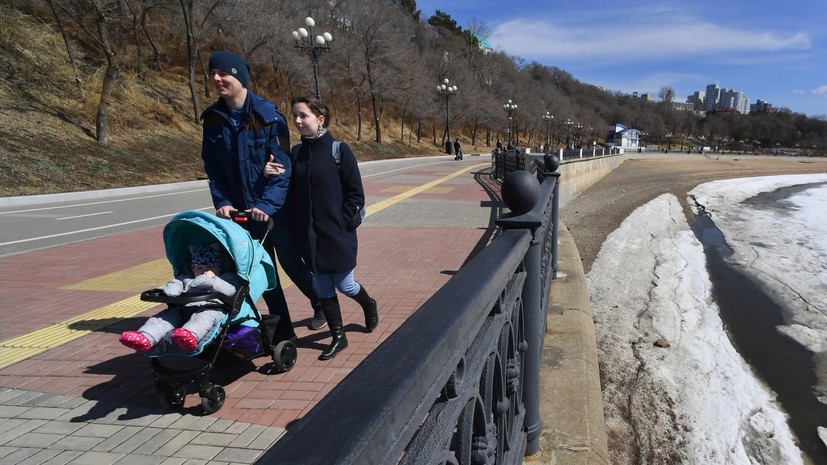On Sunday, April 11, in Russia, amendments to the rules for the use of maternity capital entered into force, adjusting the procedure for redirecting funds from the funded part of the pension to other expenses.
The corresponding order of the Ministry of Labor has been published on the official portal of legal information.
“These rules apply to women who have given birth (adopted) a second child starting from January 1, 2007, women who have given birth (adopted) a third child or subsequent children, starting from January 1, 2007, if they have not previously exercised the right to additional measures state support, as well as women who gave birth (adopted) their first child starting from January 1, 2020, who directed funds (part of the funds) of the maternity (family) capital to form a funded pension, ”the document says.
As before, Russian women have the right to refuse to use mother capital and income from its investment for the formation of a funded pension.
However, a time limit is now being introduced for which mothers must decide what to spend money on (from the available list of goals).
As Svetlana Bessarab, a member of the State Duma Committee on Labor, Social Policy and Veterans Affairs, explained to Parlamentskaya Gazeta, many women withdrew funds from non-state pension funds (NPFs), where their savings were kept, but then they forgot about them, and the money lay in the accounts of the Pension fund of Russia (PFR), without bringing investment income.
According to the amendments, now those who have refused to send their maternity capital to form a pension have six months to submit an application, which describes how the money will be spent.
The period is counted from the date of notification of the return of funds from the NPF to the account of the Pension Fund of the Russian Federation.
The time for making a decision can be extended once for six months (for this, you also need to write a statement).
If the documents are not submitted, the funds of the capital capital are "considered to be directed to the formation of a funded pension," and the FIU must transfer the money to the appropriate NPF within three months, where it will generate investment income.
“Six months during which parents can decide to use the money for purposes other than retirement is a reasonable period.
During this time, the family will be able to choose how to spend money most profitably, ”said Olga Okuneva, First Deputy Chairman of the State Duma Committee on Family, Women and Children.
Recall that maternity capital funds cannot be cashed out, but can be distributed over several purposes.
These include improving housing conditions (including repayment of mortgages), getting an education for a child, as well as purchasing goods and services for social adaptation and integration of disabled children into society.
The mother capital program in Russia will operate at least until the end of 2026.
The amount of payments is now indexed annually, and the issuance of a certificate for a capital is made without an application.
In 2021, 483,882 rubles are allocated for the first child, and 639,432 rubles for the second.
It is expected that in 2021 the Pension Fund will direct 443.3 billion rubles to finance this program, 480 billion in 2022, and 580 billion rubles in 2023.
Such figures were announced at the end of October by Maxim Topilin, who served as chairman of the board of the Pension Fund.
Last week, Russian Deputy Prime Minister Tatyana Golikova said that 11.1 million families received it during the implementation of the maternity capital program.
During a meeting led by Vladimir Putin, she clarified that 7 million Russians have directed the allocated funds to improve their living conditions.
“Since the start of the maternity capital program, the topic of housing has remained the main one for our Russian families,” the Deputy Prime Minister stated.
At the end of March, she said that in 2020, 992 thousand Russian families received monthly payments in connection with the birth or adoption of their first child.
“379 thousand families received a maternity certificate for the first time for their first child in 2020, and 830 thousand families received a certificate for maternity capital with two or more children,” Golikova said during a meeting of the Council on Guardianship in the Social Sphere.

